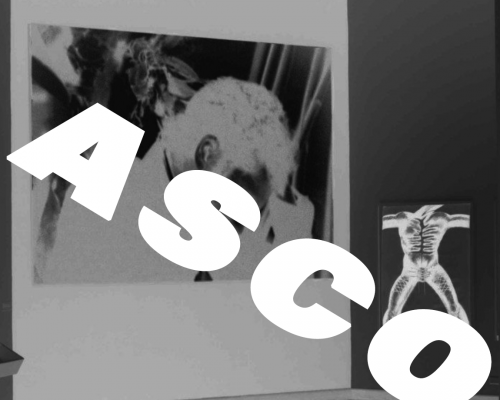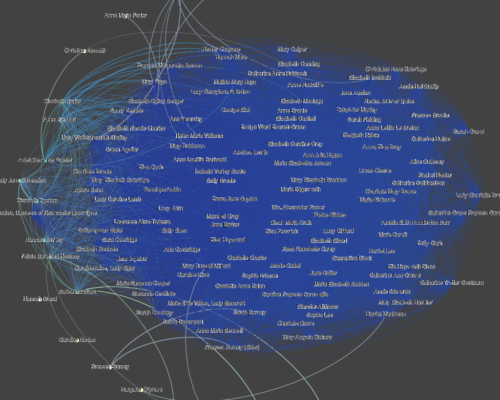Though information institutions have been historically considered to be neutral keepers of information, in actuality archives and archivists wield power over collective memory and national identity. As such, community archives and oral histories are important resources that can be used as tools that disrupt the dominant progress narrative and give light to marginalized histories. Oriented in this critical archival framework,…
Tag: DH
ASCO: Champions of Disruption and Civic Engagement – A Comprehensive Retrospective Analysis
ASCO’s significance within the realm of peripheral art-making during periods of civil unrest cannot be overstated. The collective transcended the confines of traditional artistic spaces, pioneering a movement that challenged societal norms and redefined the boundaries of artistic expression. Existing for over 15 years, ASCO operated outside the established structures of the LA gallery market, utilizing their elusiveness to cultivate…
Beyond Scansion: Exploring Holistic Prosody Analysis through Digital Humanities Tools
Prosody, the subtle art of sound and rhythm in language, plays a central role in the experience of poetry. It imparts musicality, emotional resonance, and layers of meaning to verses. Traditional prosody analysis focuses on scansion, which parses metrical patterns and stressed syllables in a text format, but often overlooks the nuanced musicality unique to poetry. In the digital age,…
Event Review: Queer Digital Humanities, College of William and Mary
This event was the opening panel at the Race, Memory, and Digital Humanities Conference. The panel was hosted by the College of William and Mary, and the speakers were Alexis Lothian, Leisa Meyer, and Amanda Philips. The panel started with a twenty minute slideshow presentation by Meyer on her work with the LGBTIQ Research Project, and was followed by a…
Machine Learning: A Primer: A DH Review
Machine Learning: A Primer Speaker: Achim Koh CUNY Graduate Center Today, many critics push to make our algorithmic world transparent, to remove the cover on “black box” machines and expose and deconstruct the systems by which these computers run. The scope of this feat, itself, appears daunting, algorithms lain in dense webs and expressed in arcane and protected jargon, yet…
NYU Center for the Humanities hosts “Distracted Reading: Acts of Attention in the Age of the Internet” event on Tuesday, September 27, 2016
The NYU Center for the Humanities held an event entitled “Distracted Reading: Acts of Attention in the Age of the Internet”on Tuesday September 27 at 6 p.m. that addressed the concept of “distracted reading,” or the idea that students’ attention is being diverted to technology rather than their class work. Speakers at the event, which was moderated by Marion Thain, Associate…
Were Terry Pratchett’s Final Works Affected by Alzheimer’s Disease?: An Analysis into Vocabulary Trends within the Discworld Series, Post Diagnosis
INTRODUCTION Regardless of type or style, writers cannot help but put themselves on the page, and so none of their biographies would seem complete without drawing attention to their subjects’ craft directly. By the extension of this thought, what could we learn about ourselves if we took all of what we have written down and stored both online and offline…
Open Source, Web-Based Teaching and the Digital Humanities: “Critical Approaches to Teaching With Web-based Technologies,” Workshop Provided by CUNY Teaching & Learning Center
EVENT IN BRIEF The workshop “Critical Approaches to Teaching With Web-based Technologies,” run by Andrew G. McKinney of the CUNY Graduate Center’s Teaching & Learning Center, centered around the exploration and implementation of non-proprietary, web technologies for educational purposes. We discussed important technologies, resources, and concepts such as WordPress, blogs, digital assignment hybridization, educational crowdsourcing, and online community engagement, as well…
British Women Writers Network
From Harold Bloom’s The Anxiety of Influence[1]: Weaker talents idealize; figures of capable imagination appropriate for themselves. But nothing is got for nothing, and self-appropriation involves the immense anxieties of indebtedness, for what strong maker desires the realization that [she] has failed to create [herself]? From Shared Experience’s Mary Shelley: She goes to stand before the portrait, and stares…


